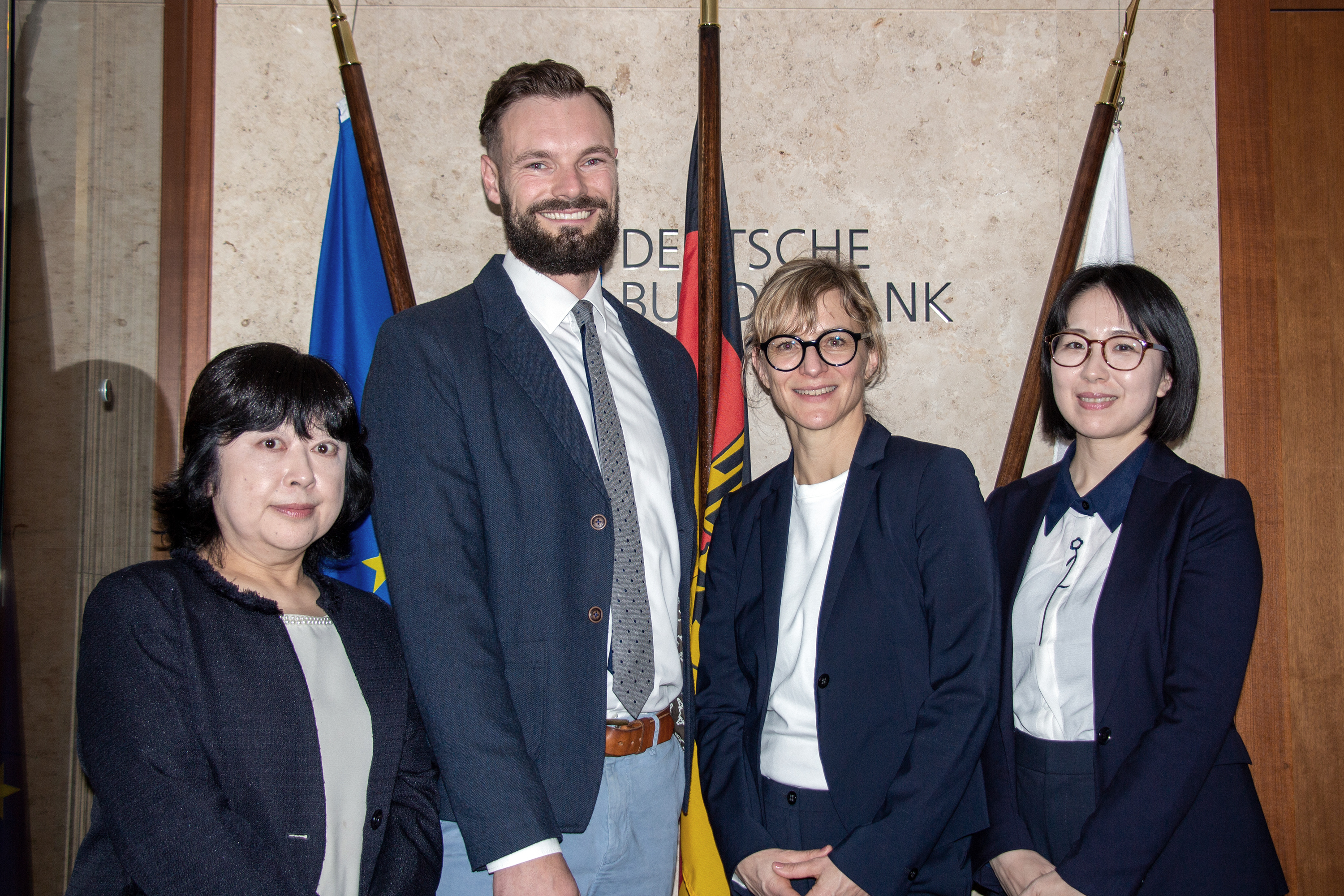
New chapter in Tokyo: Experience meets fresh ideas CIC Newsletter – April 2025
Staffing overhaul in Tokyo
The Bundesbank’s Representative Office in Tokyo has kicked off 2025 with a fresh boost. Dr Eugen Cleveland has been in charge of the office since November last year. Dr Coletta Frenzel Baudisch joined as deputy in February 2025, completing the team. Masumi Nakamura, a dedicated assistant, “clears brush” for the Representative Office and ensures that organisational processes function smoothly. Akiko Ito brings her extensive accounting expertise to the table and, through her meticulous work, ensures that the finances are managed soundly. They both build important linguistic and cultural bridges between the Secretariat of the Representative Office and Japan, the host country. In this composition of new and experienced team members, the office will further strengthen the German and European perspectives on Japan, South Korea and Australia.
Dr Eugen Cleveland already has first-hand experience in representing the Bundesbank internationally: before his assignment to Japan, he was the representative in South Africa. Prior to that, he worked in risk analysis in banking supervision, participated in the national stress test and was seconded to the European Central Bank (ECB) for the EU-wide stress test in 2018. Dr Coletta Frenzel Baudisch brings to the table valuable expertise from the Directorate General Economics, where she specialised in German public finances. The new management team complements each other and creates a strong mix of experience and fresh energy.
Strategic priorities: Evolving best practices, breaking new ground
The Representative Office of Tokyo has a clear mandate: to further deepen its specialist dialogue with the Bank of Japan, the Bank of Korea and the Reserve Bank of Australia on economic and monetary policy issues, whilst at the same time anchoring German and European perspectives “on the ground”. The focus is on regular expert discussions and bilateral peer-to-peer exchange formats.
In addition, the Representative Office intends to establish new formats for dialogue and thus contribute to the further development of international expert-level exchanges. Another key focus is on preparing and accompanying high-level Bundesbank delegations – including visits by members of the Executive Board – to meet relevant contacts “on the ground” and establish important contacts with decision-makers.
Economic and geopolitical challenges require flexible responses
Japan is currently experiencing exciting times in terms of economic and monetary policy. The prolonged period of deflation appears to have been overcome. The Bank of Japan has responded to inflation by raising interest rates. The very high government debt remains a unique feature of Japan among advanced economies. In Tokyo, the Bundesbank is closely monitoring the impact of the interest rate reversal on public finances. It is doing the same regarding the demographic challenges facing not only Japan but also South Korea. Whether artificial intelligence will be able to solve this problem remains to be seen. By contrast, Australia has comparatively low government debt, and the Reserve Bank of Australia is unique in having an explicit triple mandate of currency stability, full employment and economic prosperity and welfare.
The geopolitical context remains an important factor in work “on the ground”. Economic uncertainties and global developments are directly reflected in the financial markets. The respective national outlook may vary. Being able to better put them in perspective is also one of the tasks of the Representative Office. Close cooperation with our partners in Japan, South Korea and Australia is more important than ever.